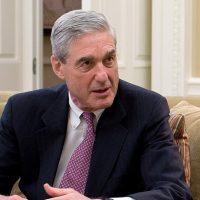 “Anticipation is also building for the release of Justice Department Inspector General Michael Horowitz’s report on the department’s handling of the case. It is probably not a coincidence that some Obama-era intelligence figures are now pointing fingers at each other over their reliance on the so-called Steele dossier, a collection of unsubstantiated allegations against the president compiled by a former British spy on behalf of the Hillary Clinton campaign.”
“Anticipation is also building for the release of Justice Department Inspector General Michael Horowitz’s report on the department’s handling of the case. It is probably not a coincidence that some Obama-era intelligence figures are now pointing fingers at each other over their reliance on the so-called Steele dossier, a collection of unsubstantiated allegations against the president compiled by a former British spy on behalf of the Hillary Clinton campaign.”
(Byron York – Townhall) From now on, the Trump-Russia affair — the investigation that dominated the first years of Donald Trump’s presidency — will be divided into two parts: before and after the release of Robert Mueller’s report….
Before the special counsel’s findings were made public last month, the president’s adversaries were on the offensive. Now, they are playing defense.
The change is due to one simple fact: Mueller could not establish that there was a conspiracy or coordination between Russia and the Trump campaign to fix the 2016 election. The special counsel’s office interviewed 500 witnesses, issued 2,800 subpoenas, executed nearly 500 search-and-seizure warrants and obtained nearly 300 records of electronic communications, and still could not establish the one thing that mattered most in the investigation.
Without a judgment that a conspiracy — or collusion, in the popular phrasing — took place, everything else in the Trump-Russia affair began to shrink in significance.